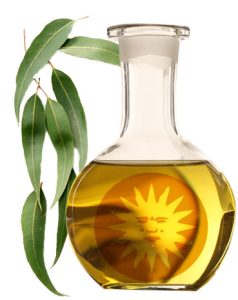Eucalyptus Essence (Eucalyptus Globulus)
At Esencias Lorente, we take pride in being distillers of eucalyptus essence, a highly valued essence in various industries. Extracted from carefully selected eucalyptus leaves, our eucalyptus essential oil is produced through a steam distillation process in stainless steel stills. This method ensures the utmost purity and quality of our essence, preserving its aromatic and therapeutic properties. Widely used in the pharmaceutical, cosmetic, personal care, and cleaning industries, our eucalyptus essential oil offers a fresh and invigorating aroma, as well as respiratory and refreshing properties. At Esencias Lorente, our extensive experience in essence distillation makes us a reliable option for eucalyptus essence production. Trust in our solid knowledge and dedication to provide you with a product of the highest quality, backed by years of expertise in the aromatic plant distillation sector.
Description: Liquid pale reddish essential and fresh, menthol and camphored smell.
Bloom: In autumn and winter.
Growth: In less of a century, its cultivation has been spread all over the Iberian Peninsula. Nowadays the major production comes from Huelva.
Composition: This essence is composed mainly of Cineol, Alpha-Pinene, Para-Cymene and Limonene.
Use :It is used mainly in Aromatherapy and Pharmacy.
REQUEST A QUOTE WITHOUT COMMITMENT
TECHNICAL TABLE OF eucalyptus essential oil
ORGANOLEPTIC INFORMATION
PHYSICO-CHEMICAL INFORMATION
CHEMICAL COMPOSITION (Active Ingredients)
The essential oil of eucalyptus (Eucalyptus globulus) is extracted from the eucalyptus plant leaves and is known for its refreshing properties and health benefits for the respiratory system. Here are some of the common chemical components found in the essential oil of eucalyptus:
- 1,8-cineole (Eucalyptol): This is the main component of eucalyptus essential oil and gives it its characteristic scent. It is known for its expectorant and decongestant properties, being beneficial for respiratory health.
- Alpha-pinene and Beta-pinene: Terpenes that contribute to the scent and have antimicrobial properties.
- Limonene: A terpene common in many citrus essential oils, which adds a citrusy touch to the scent and may have refreshing properties.
- Terpinene: Another terpene that contributes to the scent and may have antimicrobial properties.
- Piperitone: Present in small amounts, it may contribute to the scent and have refreshing properties.
- Aromadendrene: Another component that contributes to the aromatic profile of eucalyptus.
This essential oil is widely used in aromatherapy, especially to relieve nasal congestion and improve respiratory function. Additionally, it is used in personal care and cleaning products due to its refreshing and cleansing properties.
Description of Eucalyptus
Eucalyptus (Eucalyptus globulus) is an evergreen tree native to Australia, but has been cultivated in various parts of the world due to its medicinal properties and versatile wood. It is known for its characteristic scent and the benefits derived from its leaves, especially through the essential oil obtained from them.
- Tree: Eucalyptus is a tall, fast-growing tree that can reach significant heights. It has a fibrous bark and often peels off in long strips.
- Leaves: The leaves are lanceolate, grayish-green in color, and have an intense camphor-like aroma. Young leaves are more rounded, while mature leaves are more elongated.
- Flowers: It produces small and discreet creamy white flowers.
Uses and Applications of Eucalyptus (Eucalyptus globulus):
- Essential Oil: The essential oil of eucalyptus is extracted from the leaves and used in aromatherapy. It has expectorant and decongestant properties, making it a popular remedy for relieving symptoms of colds and respiratory congestions.
- Inhalations: Vapor inhalation with eucalyptus essential oil is performed to help decongest the respiratory tract and relieve coughing. It is also used in topical chest products.
- Respiratory Care: Eucalyptus is found in some throat care products and cough drops due to its soothing properties.
- Aromatherapy: The refreshing scent of eucalyptus is used in aromatherapy to promote mental clarity, reduce stress, and improve concentration.
- Antiseptic Properties: Eucalyptus has antiseptic and antimicrobial properties, which has led to its use in cleaning and disinfection products.
- Wood: Eucalyptus wood is used in the construction industry and furniture making due to its hardness and durability.
